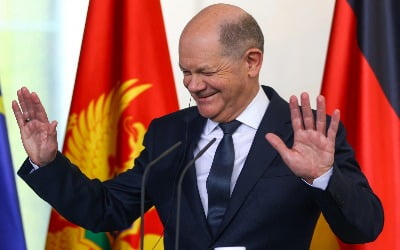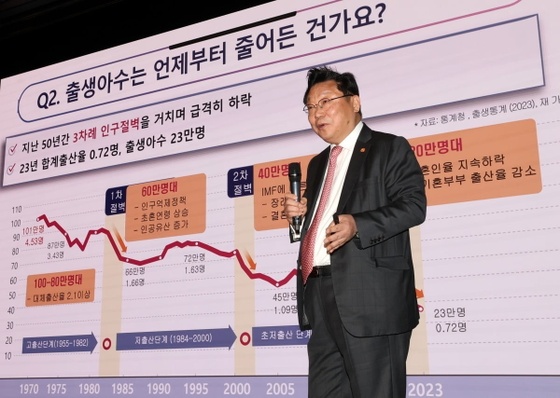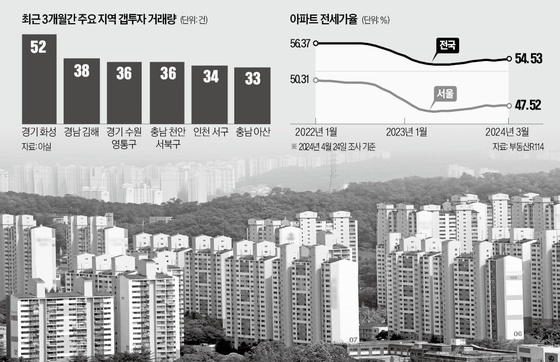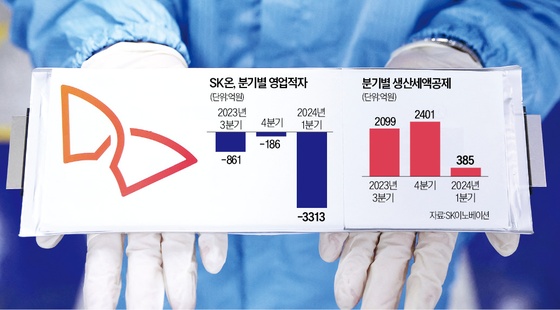입력2006.04.02 08:44
수정2006.04.02 08:47
[ Germany: Banking on a Recovery after Midyear ]
At least for now, Germany''s government is sticking with an upbeat forecast of a 1.25% gain in real gross domestic product in 2002.
But private economists expect 1% or less.
And while the difference seems small, slower growth has big implications for the euro, job prospects, and fiscal finances.
Germany''s real GDP fell in the third quarter and likely shrank further at yearend.
The December purchasing managers'' index slipped, with production, inventories, and jobs falling.
November factory orders rose, but domestic bookings alone fell for the third month in a row.
And the labor markets continued to deteriorate in November.
The jobless rate stayed at a high 9.5%, as the number of unemployed rose to 3.9 million, the largest amount in nearly two years.
Although the recent data are dismal, German executives are optimistic about a second-half recovery.
Specifically, they expect exports to strengthen, but this implies other nations will turn around before Germany does.
The government is also hopeful about the second half.
In an interview, Economics Minister Werner Muller said second-half demand would be lifted by lower taxes and low inflation.
That''s why the Finance Ministry is standing by its growth forecast of 1.25%.
But private economists, including the government''s outside economic advisers, known as the Five Wise Men, forecast real GDP growth of 0.7% in 2002.
The fear that Germany will undershoot its forecast has put downward pressure on the euro.
After the jobs data were released on Jan. 9, the euro slipped again against the U.S. dollar.
Slower growth may also lift Germany''s fiscal deficit closer to the 3% of GDP ceiling imposed by the euro zone policymakers.
----------------------------------------------------------------------------
[ 올 중반이후 회복 기대되는 독일 ]
적어도 현재로서는 독일정부가 2002년 실질 국내총생산(GDP)이 1.25% 증가할 것이란 낙관적인 전망을 고수하고 있다.
하지만 민간 이코노미스트들은 1% 이하로 내다보고 있다.
이 차이가 작은 것 같지만 더 느린 성장은 유로화와 취업전망 재정상태 등에 큰 영향을 미친다.
독일의 실질 GDP는 지난해 3.4분기에 감소했으며 마지막 분기에는 더 많이 줄어들었을 것 같다.
12월 구매관리자 지수가 떨어졌으며 생산과 재고 일자리도 감소했다.
11월 전체 공장수주액은 증가했지만 이중 국내 수주는 3개월 연속 줄었다.
그리고 노동시장은 11월에도 계속 악화됐다.
실업률은 9.5%의 높은 수준을 유지했고 실업자수도 3백90만명으로 불어났다.
이는 약 2년만의 최대다.
최근의 (경기)지표들이 우울하지만 독일 기업인들은 올 하반기 회복을 낙관하고 있다.
이들은 특히 수출이 늘어날 것으로 기대하고 있다.
하지만 이것은 독일이 회복하기 전에 다른 나라가 먼저 회복세로 반전되리란 점을 시사해준다.
정부 역시 하반기에 대해 희망적이다.
베르너 물러 경제장관은 한 인터뷰에서 감세와 낮은 인플레이션 등에 힘입어 하반기 수요가 회복될 것이라고 말했다.
이것이 독일 재무부가 1.25%의 성장 전망을 견지하고 있는 이유다.
그러나 "5명의 현인(賢人)"으로 알려진 정부의 외부 경제고문등 민간 이코노미스트들은 올해 실질 GDP성장률을 0.7%로 전망했다.
독일이 전망치를 충족시키지 못할 것이라는 우려로 유로화는 하락 압력을 받고 있다.
지난 9일 고용동향이 발표되자 유로화 가치는 미국달러화에 다시 밀렸다.
또 (전망치를 밑도는) 낮은 성장률을 기록할 경우,독일의 재정적자는 유로존 정책입안자들이 규정한 GDP 대비 3%의 상한선에 보다 더 가까워 질 수도 있다.





![34년만 엔·달러 환율 160엔 돌파…환율 출렁인 이유는? [한경 외환시장 워치]](https://timg.hankyung.com/t/560x0/photo/202404/01.36562723.1.jpg)








